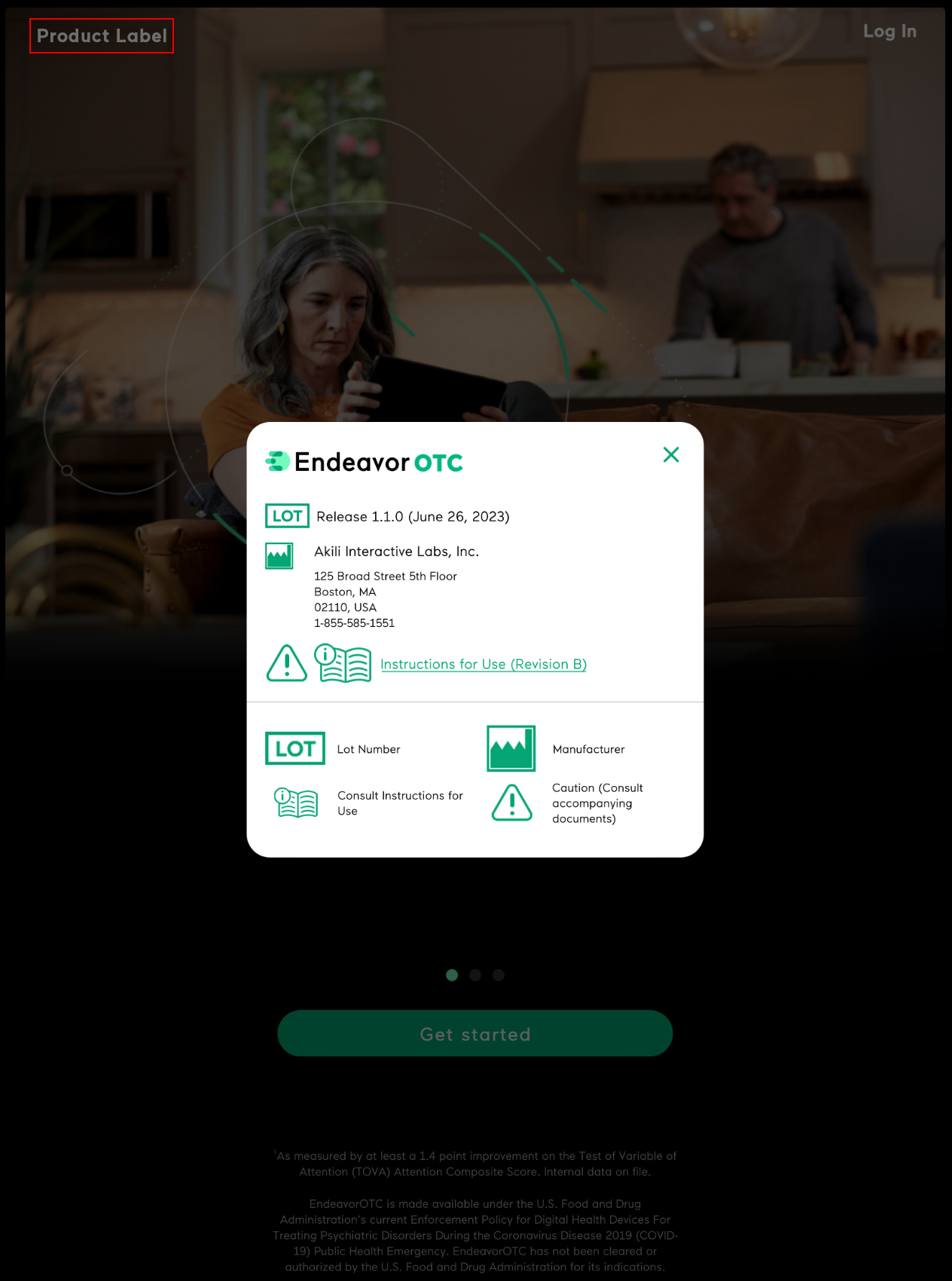Video Games for ADHD: Can They Be Good for the Brain?

Could some video games actually be healthy for people with ADHD?
After years of hearing that video games might “rot your mind”, many people wonder how some games could, in fact, be good for the brain. Akili built the world’s first prescription video game treatment for ADHD, EndeavorRx, because we know that game-based interactions can provide much more than a source of entertainment. Beyond that, we launched EndeavorOTC so that adults could have access to this same innovative treatment design and technology. The right video game treatment can improve mental processes in a way that translates to daily tasks.
To understand how properly designed video games can be good for the human brain—and in particular why treatments like EndeavorRx and EndeavorOTC work in treating ADHD and improving focus—it’s first important to understand:
- How the brain works for those with ADHD and why focus is so difficult
- How we can improve focus through experience
- How a video game-based treatment can affect the brain in ways other games may not
Understanding the brain of someone with ADHD
In the brain, there are systems (or neural networks) that help people think, pay attention, and remember things. However, in the brains of people with ADHD, these networks work together a little differently than they do in the brains of people who don’t have ADHD. The interactions between these brain networks can be weaker in people with ADHD. This is what can make focusing so difficult and why certain tasks or activities can be harder to complete.
It’s not that different interactions between neural networks are wrong and others are right. However, it means that people with ADHD may find some activities and behaviors challenging. And they may need to find ways to strengthen these interactions. To understand these systems, check out this deep dive on neural networks and how they can be targeted.
How we can improve focus through experience
Did you know that brains can change? In fact, our brains are changing all the time– this is referred to as neuroplasticity. It’s what we do with our brain that determines how it is connected, what it is good at, and what new things it can learn to do. This means we can strengthen focus by designing an experience that asks the brain to carry out the mental processes required for focus and shifting focus to-and-from key tasks. But that doesn’t mean this work is easy or quick to accomplish.
An easy way to think about strengthening our brains is relating it to physical therapy. When you visit a physical therapist, it’s typically with a very specific ailment or challenge in mind that you want to fix over a course of weeks through extremely targeted exercises. Sometimes these exercises are enjoyable, sometimes they are challenging, but following through will very likely result in noticeable improvements in that original ailment. A similar pattern of exercise and improvement can be seen when we challenge our brains to overcome very specific deficits, such as inattention or distraction. Learn more about neuroplasticity and brain strengthening from our Head of Cognitive Science in our article about improving your ability to focus.
How can video games affect the brain?
The answer comes down to the game, its intended goal, and the science used to develop it. The processes for developing video games for entertainment and video games for ADHD treatment often look completely opposite of one another.
Most video games are intended for entertainment, designed to keep a person continually wanting more, which requires activating the reward center in the brain. The design teams for these games could include many specialties from the video game industry but will not likely include neuroscientists, cognitive scientists, or healthcare professionals of any kind. These games can offer entertainment, enjoyment, or, in some cases, even stress relief.
On the other hand, EndeavorOTC and EndeavorRx are video games for ADHD, meaning they have treatment programmed into them and are designed to challenge attentional control during gameplay. Our design teams include scientists and healthcare professionals, who focus the design on the neurocognitive differences and needs of adults and children who have been diagnosed with ADHD. These games can actually treat an underlying impairment or condition, requiring focus and flexibility to manage multiple tasks at the same time.
So, are video games good for your brain?
The short answer? They can be.
But when considering a video game for ADHD, it’s important to first ask why the game was built, who built it, and examine its potential to impact your cognition. Determine whether that game was founded on clinical research and if its impact has been tested in relevant audiences. Then work with your healthcare team to make the best choice for you.
About the Author
-
Caty Reid’s career has been characterized by her unique blend of consumer and healthcare marketing expertise, requiring her to routinely weave complex and verbose medical concepts into digestible and user-friendly consumer content. Through her love of writing and her unwavering commitment to improving lives, she has consistently excelled in navigating the complexities of the healthcare landscape, bridging the gap between innovative technologies and the needs of consumers. Her passion for writing for the ADHD community, and those interested in better understanding their condition and their options, goes well beyond professional expertise; Caty has also been diagnosed with ADHD as an adult and has been on a personal & professional journey to help uncover the unknowns and crush the stigma(s) of adult ADHD.

